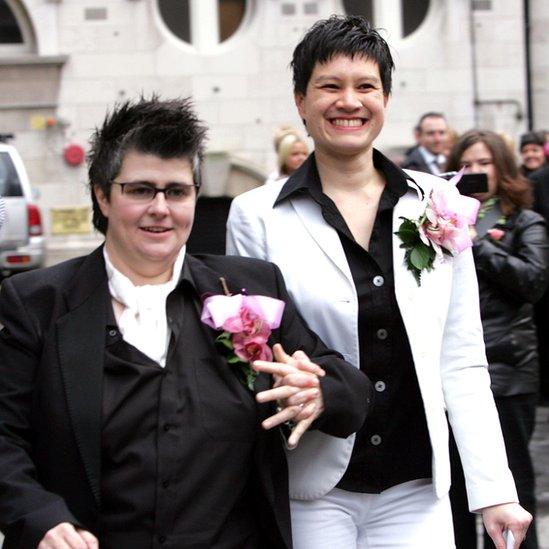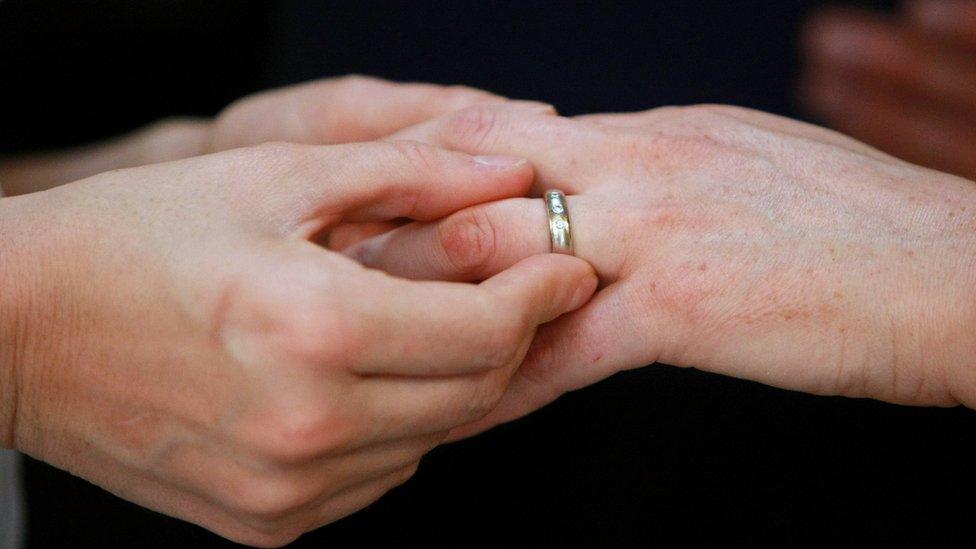Same-sex marriage: Belfast judge to deliver ruling after Christmas
- Published
Shannon Sickles and Grainne Close are one of two couples taking the case
Judgement in a landmark legal case challenging Northern Ireland's ban on same-sex marriage will be delivered after Christmas.
The case has been taken by two same-sex couples who were the first people in the UK to enter civil partnerships in 2005.
Their lawyer claimed they are suffering state discrimination as a result of the ban.
Judgement was reserved after a two-day hearing at the High Court in Belfast.
Grainne Close, Shannon Sickles and Chris and Henry Flanagan-Kane challenged Stormont as the only UK administration to ban same-sex marriage.
Belfast was the first place in the UK to host civil partnership ceremonies when the law was introduced 10 years ago, but now Northern Ireland is the only part of the UK and Ireland that has not legalised same-sex marriage.
The two couples took the judicial review proceedings, claiming that the ban breaches Article Eight of European Convention on Human Rights, by denying respect for their private and family lives.
But a lawyer for Stormont's Department of Finance and Personnel (DFP) told the court the ban was not a breach of human rights.
He added that civil partnerships already met the minimum requirements set out under human rights law.

In 2005, Grainne Close and Shannon Sickles made history in Belfast by being the first lesbian couple in the UK to enter a civil partnership
He told the court that recent rulings from the Grand Chamber of the European Court of Human Rights supported the view that no significant breach has occurred.
Last month, in the fifth Stormont vote on the issue, MLAs backed the introduction of same-sex marriage for the first time, but the Democratic Unionist Party blocked it by deploying a mechanism requiring the proposal to achieve a cross-community majority.
The barrister claimed claimed a court intervention could undermine devolution.
"It is live in the democratic process. The applicants may not be satisfied with the pace, outcomes or infrastructure but it cannot be deemed that it is not a live issue," he said.
The judge heard the case tandem with a separate bid by two men who want their marriage in England to be recognised in their native Northern Ireland.
He said: "There are a lot of issues raised in this case and the other. I will give my judgement after Christmas."
- Published3 December 2015

- Published2 November 2015
